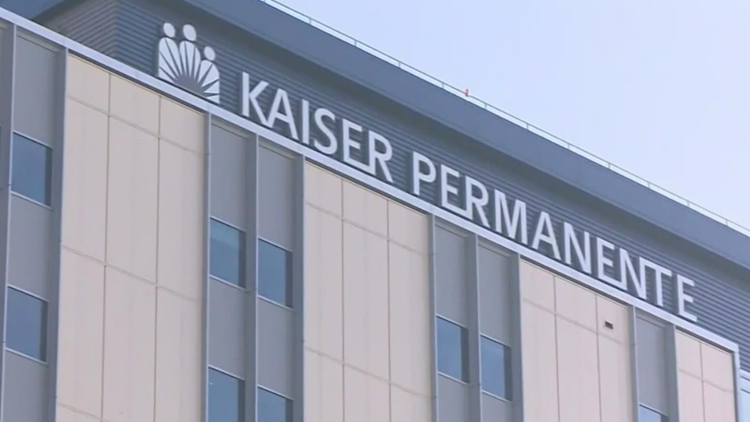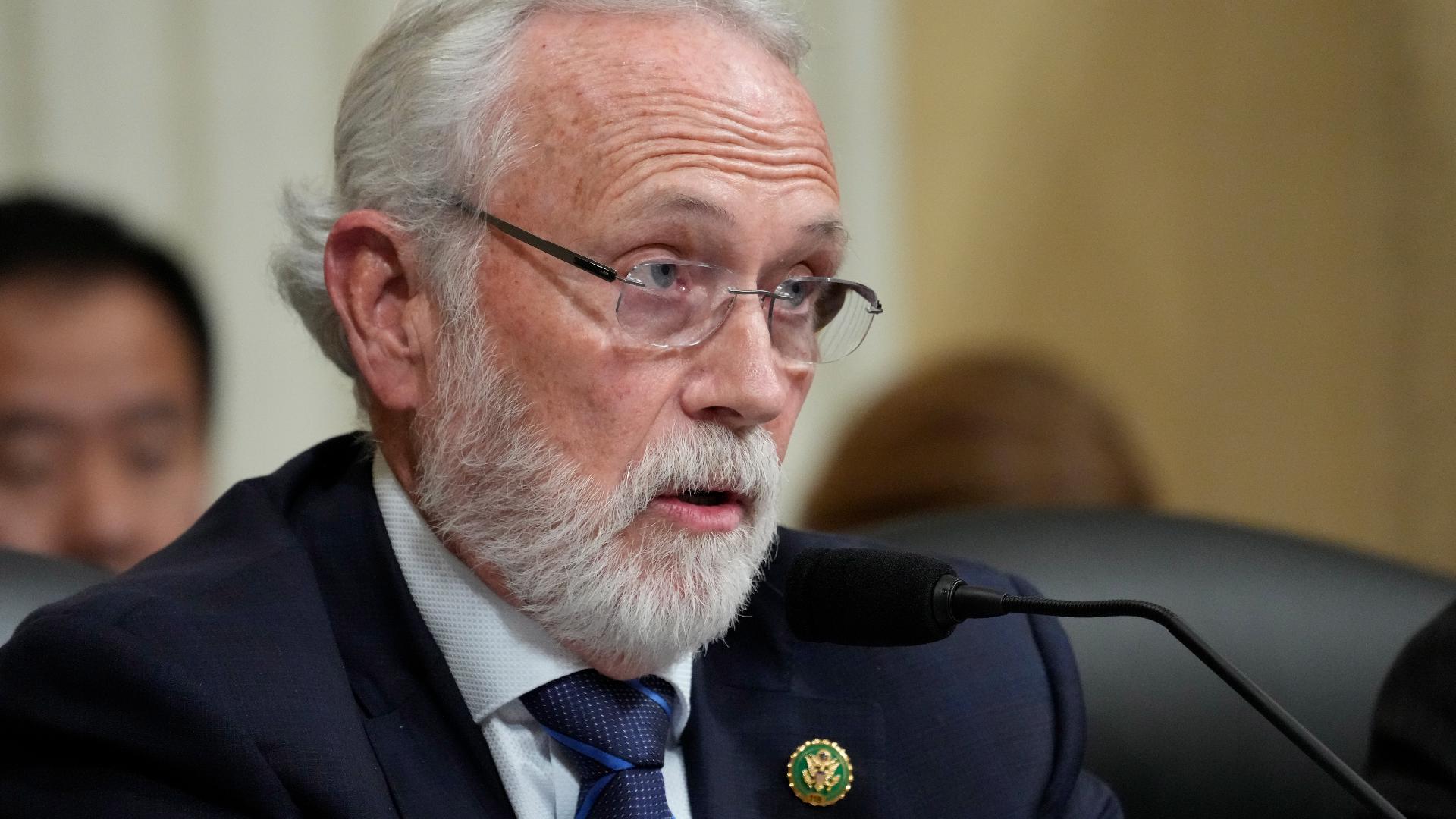PORTLAND, Ore. — Health care workers at Kaiser Permanente in Oregon and Washington have voted to authorize a strike if they don't reach a new contract agreement before the Sept. 30 expiration of the current contract. The vote doesn't guarantee that a strike will happen, but it allows the union's bargaining team to call a strike at any time after the deadline. Union officials said Thursday that they would give Kaiser 10 days notice before any strike activity begins.
The vote included Kaiser workers affiliated with the Service Employees International Union Local 49, which represents nursing assistants, technicians and many other categories of building service workers. The vote included about 4,000 workers in the two states and 98% voted in favor of authorization, the union announced in a news release.
The SEIU Local 49 workers are part of a larger Coalition of Kaiser Permanent Unions representing about 85,000 Kaiser workers across several states, all of whom have held or are planning to hold strike authorization votes ahead of the Sept. 30 deadline. Colorado workers have already voted to approve the plan, according to the union, and the results of a vote from 60,000 California workers are expected later Thursday.
"Understaffing in Kaiser Permanente facilities is a crisis, and healthcare workers will not stand by as Kaiser fails to act and fails to even bargain in good faith with their dedicated frontline staff," SEIU Local 49 President Meg Niemi said in a statement. "4,000 SEIU Local healthcare workers at Kaiser have joined our colleagues in overwhelmingly voting to authorize a strike because if Kaiser executives are going to continue to violate the law and put patient safety on the line, we must act."
Kaiser stressed in a statement that the vote does not guarantee that a strike will happen, but said it has "comprehensive plans to ensure continued access to needed health care services, should a strike occur later this year."
Pay and staffing disputes
The union is pushing for better pay, job protections, improved workforce development and higher staffing levels, according to the news release, and is also accusing Kaiser of committing unfair labor practices and refusing to acknowledge that patient service levels have declined. Kaiser and SEIU negotiated their last contract in 2019, before the COVID-19 pandemic, and the union said the crisis exacerbated the company's understaffing and poor working conditions.
"It’s devastating to see our patients get sicker and go without the care they need, all because Kaiser won’t put patient and worker safety first," Audrey Cardenas Loera, a Benefits Specialist at Tanasbourne Dental, said in a statement. "If Kaiser won’t bargain in good faith, we’re prepared to do whatever it takes to stand up for our patients and the safe staffing they deserve. We will be going on strike if Kaiser doesn't stop committing unfair labor practices."
Kaiser pushed back in a statement to KGW, declaring that it has proposed across-the-board wage increases of 10-14% over the lifetime of a four-year contract and an "enterprise-wide" minimum wage of $21 per hour. The company also defended its record on staffing, asserting that it has kept its turnover rate well below the industry average in recent years, and has accelerated the pace of hiring this year.
"A strike authorization by SEIU’s members does not reflect any breakdown in bargaining, nor does it indicate a strike is imminent or will happen at all. It is a disappointing action considering our progress at the bargaining table. Unfortunately, this year, throughout our negotiations we have seen Coalition leaders attempt to rally their unions’ members to threaten a strike despite important progress made through negotiations," Kaiser said in the statement.
Summer of labor unrest
Union negotiations at Kaiser previously came to a head about two years ago, when nurses and other staff affiliated with the Oregon Federation of Nurses and Health Professionals threatened to strike for better staffing and higher pay. The strike was averted when a new contract was reached two days before the strike was set to begin.
The current potential strike could be the largest health care strike in U.S. history, the union claimed, and the current contract negotiations are the largest single-employer bargaining taking place in the U.S. now that the Teamsters and UPS have reached a deal (the ongoing Screen Actors Guild strike and the looming auto workers strike each involve roughly 150,000 workers, but in those cases the disputes involve multiple employers).
The potential strike comes at the end of a summer that has seen a flurry of strikes, pickets and other labor activity both in the Portland area and nationwide, including the Hollywood writers' strike, ongoing labor action at unionized Starbucks stores and a one-day strike at Powell's Books. Nurses at Providence hospitals in Portland and Seaside also went on a five-day strike in June amid high tensions with the health care provider. They reached a deal last month.



